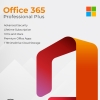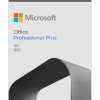The Essential Guide to Antiviruses: Protecting Your Digital Realm
Introducing the ultimate “Guide to Antiviruses” – your go-to resource for mastering the art of digital defense. In today’s interconnected world, safeguarding your devices against cyber threats has never been more critical. This comprehensive guide to antiviruses is here to empower you with the knowledge and tools needed to navigate the intricate landscape of digital security. This guide to antiviruses features comprehensive and easy-to-follow instructions that cater to users of all levels – from beginners taking their first steps into the realm of digital security to seasoned tech enthusiasts seeking advanced insights
Understanding Antivirus Software
Antivirus software, often referred to as simply “antiviruses,” is a specialized type of program designed to detect, prevent, and remove malicious software, commonly known as malware. This can include viruses, worms, Trojans, ransomware, spyware, and more. The primary purpose of antiviruses is to identify and eliminate these threats, thus protecting your devices and personal information from potential harm.
How Do Antiviruses Work?
Antiviruses employ various techniques to identify and neutralize malware:
- Signature-Based Detection: This method involves comparing files and programs on your computer against a vast database of known malware signatures. If a match is found, the antivirus will quarantine or delete the malicious file.
- Behavioral Analysis: Antiviruses monitor the behavior of programs and processes running on your device. If a program starts exhibiting suspicious or malicious behavior, the antivirus can intervene.
- Heuristic Analysis: Antiviruses use heuristics to identify new or unknown threats by analyzing their behavior and characteristics. While this method can be effective, it may also lead to false positives.
- Real-Time Protection: Modern antiviruses offer real-time protection, constantly monitoring your system for any suspicious activities and blocking potential threats as they arise.
- Firewall and Web Protection: Many antivirus suites come with additional features like firewalls and web protection to safeguard against online threats, phishing attempts, and malicious websites.
Choosing the Right Antivirus
Selecting the right antivirus for your needs is crucial. Here are some factors to consider:
- Features: Determine the features you require. Do you need a basic antivirus or a comprehensive security suite with additional tools like firewall, parental controls, and VPN?
- Performance Impact: Some antivirus software can slow down your device’s performance. Look for solutions that have a minimal impact on your system’s speed.
- Ease of Use: User-friendliness matters. A good antivirus should have an intuitive interface and require minimal user intervention.
- Detection Rates: Research independent antivirus testing labs’ reports to gauge the software’s effectiveness in detecting and neutralizing threats.
- Updates: Regular updates are essential to stay protected against new malware strains. Ensure the antivirus receives frequent updates.
- Compatibility: Make sure the antivirus is compatible with your operating system and other software.
- Customer Support: Reliable customer support can be invaluable if you encounter any issues.
Best Practices for Cybersecurity
While antivirus software is a cornerstone of cybersecurity, it’s not the only measure you should take. Consider these additional steps:
- Regular Updates: Keep your operating system, software, and antivirus updated to patch vulnerabilities and stay protected against the latest threats.
- Strong Passwords: Use strong, unique passwords for all your online accounts and enable two-factor authentication whenever possible.
- Safe Browsing Habits: Avoid clicking on suspicious links, downloading files from untrusted sources, and be cautious when sharing personal information online.
- Backup Data: Regularly back up your important data to an external source to mitigate the impact of potential ransomware attacks.
- Education: Stay informed about the latest cybersecurity threats and best practices to enhance your online safety.








